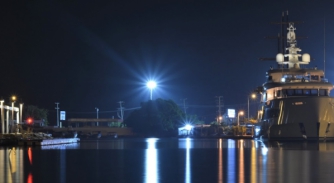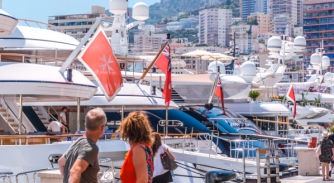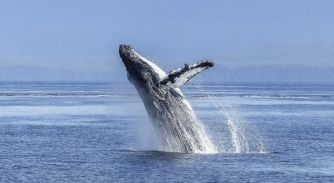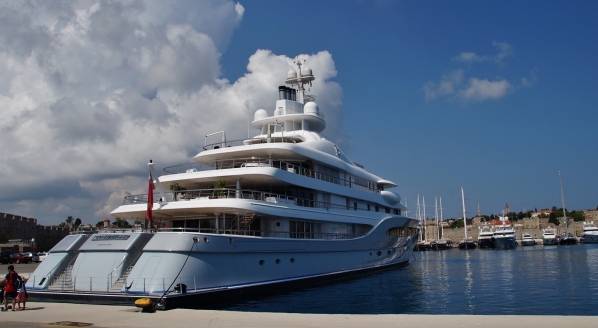Mind your language
Does yachting’s dedication to heritage and traditional language hold it back?
Anyone who works within the superyacht industry or has experience owning or chartering superyachts will most likely be accustomed to its linguistic nuances, to the extent perhaps where using the established lingo is almost second nature. However, could the market’s dedication to maritime idiosyncrasies be restricting its ability to communicate effectively with new generations and demographics of owners and charter guests?
Joining any industry brings with it a unique set of challenges when it comes to understanding the market that you have entered. However, so far as luxury and transport go, I would argue that the superyacht industry might have more linguistic nuances than most other markets. Whether it is referring to the toilet as a head, the kitchen as the galley or suddenly discovering that the terms left and right are redundant, superyachts are filled with terminology that is steeped in maritime history and tradition. History and tradition, however, do not float everyone's boats.
That ships’ toilets are called heads because the toilet area for regular sailors was placed at the head or bow of sailing ships is, undoubtedly, an interesting fact. Indeed, for purists, especially those that sail, this fact may still be of sufficient interest for them to continue referring to the toilets as heads. And yet, how many superyacht owners today are genuine sailing enthusiasts and historians? The argument about the extent to which superyachts are no longer genuine sailing vessels is often repeated with terms like ‘floating palaces’ being propagated by those that feel yachting has moved more in a direction of luxury residences.
Where superyacht marketing is concerned today, many people will speak at length about how rhetoric has moved away from specifications and more towards a model that describes experiences and mirrors values. If this is genuinely the case, how many superyacht owners and charter guests genuinely see their values mirrored in maritime history?
My argument is not that maritime terminology should be abandoned entirely, more that in all cases superyachting should be adopting models, both linguistic and otherwise, that are bespoke. In the instances where the clients in question are sailors or maritime enthusiasts, the use of historical language may well aid in the allure of superyachting. However, where they are not and their interests lie elsewhere, the language should be adapted to mirror the client in question.
It may only be a minor point, but the ownership experience should be adapted at all times to be as easy to understand and as enjoyable as possible. Does having our own privileged language really help us communicate the excellence of the superyacht lifestyle to individuals that are not already heavily engaged in yachting or sailing more broadly? A word that has commonly been levied at the superyacht industry to account for its lack of willingness to change is 'conservative', could it be that the continued use of traditional language is just another way in that the superyacht industry is being perceived as conservative? The message that the superyacht industry wishes to present to the world today is, by and large, contemporary and flexible, I believe that the language should be the same.
NEW: Sign up for SuperyachtNewsweek!
Get the latest weekly news, in-depth reports, intelligence, and strategic insights, delivered directly from The Superyacht Group's editors and market analysts.
Stay at the forefront of the superyacht industry with SuperyachtNewsweek
Click here to become part of The Superyacht Group community, and join us in our mission to make this industry accessible to all, and prosperous for the long-term. We are offering access to the superyacht industry’s most comprehensive and longstanding archive of business-critical information, as well as a comprehensive, real-time superyacht fleet database, for just £10 per month, because we are One Industry with One Mission. Sign up here.
Related news

A race to the bottom
Mainstream media coverage of yachting is getting worse, but we don't have to stay complicit
Business

An opportunity to modernise?
The pandemic has provided boat show organisers with an unprecedented opportunity to review their practices
Business

Pie in the sky
Over estimations of market potential create a false image and do the superyacht community a disservice
Owner


Is long-term berth leasing a viable business model for marinas?
SuperyachtNews asks the market whether the concept is losing its allure
Business

What have we learned?
It is fair to say that 2020 was an absolute nightmare, but out of adversity comes opportunity. Let's not forget the lessons we have learned
Business
Related news
A race to the bottom
4 years ago
An opportunity to modernise?
4 years ago
Pie in the sky
5 years ago
We are what you sell
5 years ago
What have we learned?
5 years ago
NEW: Sign up for
SuperyachtNewsweek!
Get the latest weekly news, in-depth reports, intelligence, and strategic insights, delivered directly from The Superyacht Group's editors and market analysts.
Stay at the forefront of the superyacht industry with SuperyachtNewsweek




